Every woman knows the menstrual cycle isn’t just about “that time of the month.” Some days you feel full of energy and ready to take on the world, while on other days, you just want to curl up with a blanket and a bar of chocolate. Why does this happen? The answer lies in your hormones during menstrual cycle.
If you have ever noticed that one week you feel like a powerhouse full of ideas and enthusiasm, and the next you are emotional, bloated, or craving sweets, you are not alone. These shifts are not random — they are the direct result of hormones during the menstrual cycle. Once you understand this cycle better, life makes much more sense. You can stop blaming yourself for mood swings and start working with your body instead of against it.
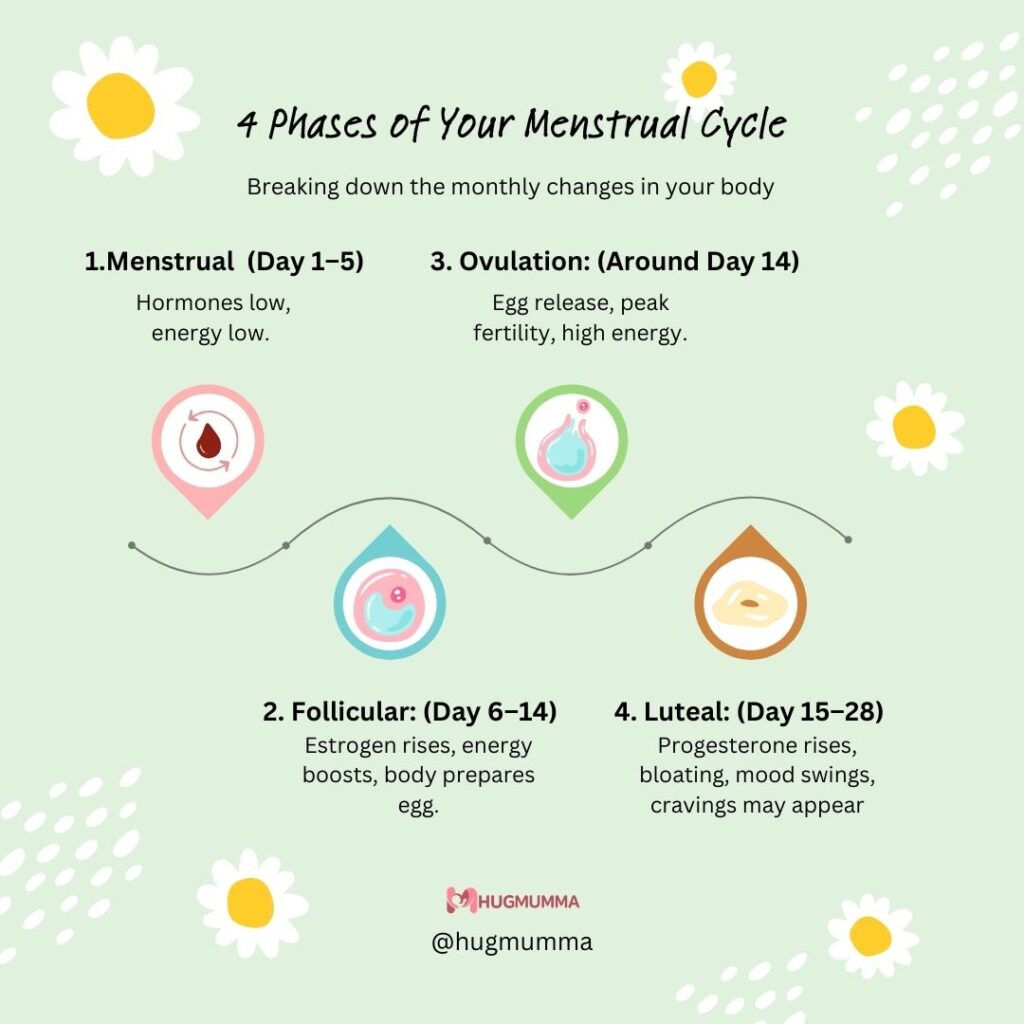
In this blog, we’ll look at the menstrual cycle phases explained one by one, and see how female hormones and periods are deeply connected.
The Menstrual Phase: The Reset (Days 1–5)
The menstrual cycle begins with the first day of bleeding, known as the menstrual phase. At this point, both estrogen and progesterone — the two main female hormones — are at their lowest. Since no pregnancy occurred, the uterine lining that had been built up in the previous cycle is shed, which is what you see as your period.
This hormonal low is why so many women feel fatigued, achy, or emotionally sensitive during their period. Your body is going through both a physical and hormonal reset. Some women also notice headaches, digestive issues, or disturbed sleep. It’s as if the body is whispering, “Slow down, I need rest.”

Think of this phase as wintertime. Just as nature conserves its energy in winter, your body is conserving its energy too. This is a good time to practice gentleness with yourself. Instead of pushing through with high-intensity workouts, you may feel better with light stretching, yoga, or simply a slow walk. Foods rich in iron and warmth — such as leafy greens, lentils, soups, or a comforting fish curry — can also help restore strength.
Example from daily life: Many women wonder why they suddenly lose motivation for things that seemed easy just a week ago. Maybe you cancel plans, feel drained by meetings, or find yourself more irritable than usual. That’s not laziness — it’s simply the effect of hormones resetting. Listening to your body here is an act of self-love.
The Follicular Phase: Energy Returns (Days 6–14)
Once your period ends, the follicular phase begins. This is when the body starts preparing for ovulation. Follicle Stimulating Hormone (FSH) prompts the ovaries to prepare eggs, and estrogen levels begin to rise. According to the National Institutes of Health (NIH), this process is essential for healthy ovulation and overall fertility. This rise in estrogen brings with it a lift in mood, energy, and mental clarity.
If the menstrual phase is winter, then the follicular phase is spring. Slowly, you’ll feel more awake, optimistic, and social. Your brain feels sharper, and tasks that seemed difficult last week suddenly feel manageable again. You might find yourself more creative, enthusiastic about work projects, or even more open to trying new things. Many women notice their workouts feel stronger and their stamina improves in this phase.
Example from daily life: Imagine you were struggling to focus during your period week, but now you’re suddenly full of ideas and energy. You might reorganize your room, start a new diet plan, or finally complete tasks you’ve been putting off. That’s estrogen’s power in action. It is giving you back your drive and clarity.
Nutrition also plays a big role here. Fresh vegetables, proteins, and whole grains can fuel this natural surge of energy. If you want to start a new habit, like joining a dance class or picking up journaling, this is the time your body will support you the most.
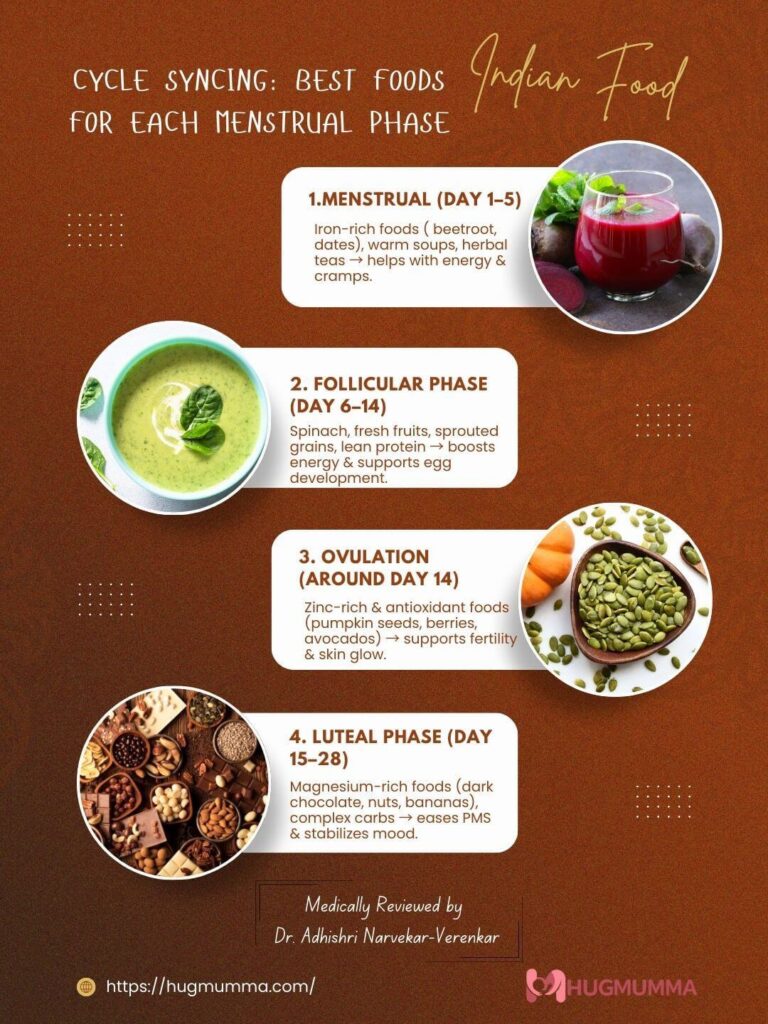
The Ovulation Phase: Nature’s Peak (Around Day 14)
Ovulation is the midpoint of the menstrual cycle and marks the body’s most fertile time. Luteinizing Hormone (LH) surges, causing the release of a mature egg from the ovary. At the same time, estrogen peaks, and progesterone begins to rise.
This hormonal mix often makes women feel their best. You may notice that your skin looks clearer, your hair shinier, and your overall mood brighter. Libido often increases, and many women feel more social, confident, and outgoing. It’s biology at work — your body is naturally designed to make you more attractive and active during ovulation, because this is when reproduction is most likely.
Example from daily life: Have you ever had a week where you suddenly felt like dressing up more, speaking up in meetings, or taking the lead in social gatherings? That’s the ovulation effect. You might even feel more adventurous in your workouts, pushing yourself harder or trying something new.
This is also a great time to schedule important events, presentations, or even date nights — your hormones are supporting your confidence and charm. To support ovulation health, foods rich in zinc and omega-3s (like nuts, seeds, and fish) are especially beneficial.
The Luteal Phase: Preparing for Rest (Days 15–28)
After ovulation, the luteal phase begins. Progesterone takes center stage here, thickening the uterine lining in case pregnancy occurs. Estrogen remains present but at a moderate level. If pregnancy does not happen, both hormones drop sharply towards the end of this phase, which is what triggers your next period.
The first half of the luteal phase often feels calm and steady. Many women feel productive and balanced. However, as progesterone peaks and then begins to fall, premenstrual symptoms (PMS) can appear — mood swings, bloating, headaches, breast tenderness, fatigue, or cravings for sugary and salty foods.
Think of this as autumn, when the body is slowing down and preparing for winter (your period). Some women describe this time as feeling “not themselves,” but it is really just hormones shifting gears.
Example from daily life: Maybe you’ve noticed that a few days before your period, you become more sensitive — a sad movie makes you cry, your patience with kids or colleagues runs thin, or you crave chips and chocolate late at night. None of this means you are weak; it’s simply progesterone and estrogen dipping.
This is the time to be kind to yourself. Magnesium-rich foods like bananas, nuts, and dark chocolate can ease PMS. Cutting back on caffeine and salty snacks helps reduce bloating. Light stretching, meditation, or journaling can calm the mind.
Why Understanding Hormones During Menstrual Cycle Matters
When we look at the menstrual cycle phases explained this way, it becomes clear that your hormones are not your enemies. They are guides, telling you when to rest, when to create, when to connect, and when to prepare for renewal. Once you start paying attention, you’ll notice patterns that help you plan your life better.
For instance, you might schedule big projects or creative brainstorming during your follicular or ovulation phase, and keep the luteal phase for wrapping up tasks and practicing self-care. You might accept that during your menstrual phase, you need slower mornings and extra comfort — and that’s perfectly okay.
Understanding female hormones and periods is about reclaiming control. It allows women to stop fighting against their natural rhythms and instead flow with them. Whether you are a student, a working mom, or managing household responsibilities, this awareness can transform the way you view your cycle.
Think of your cycle as a monthly roadmap. When you learn to read it, you can plan your energy, diet, workouts, and even social life around it. That’s the real power of understanding your hormones during the menstrual cycle.
When Hormones Go Out of Balance
While the menstrual cycle is beautifully designed, sometimes hormones don’t rise and fall the way they should. This can lead to irregular periods, heavy bleeding, severe PMS, mood swings, acne, weight changes, or even conditions like PCOS. Think of it like an orchestra — if one instrument is out of tune, the whole music feels off. Similarly, when estrogen, progesterone, or other female hormones get imbalanced, the body starts sending signals.
Most hormonal imbalances today are linked to stress, lack of sleep, poor diet, or medical conditions. The good news is that lifestyle changes — like eating balanced meals, exercising regularly, managing stress, and getting enough rest — can support hormone health. If problems continue, consulting a gynecologist or an endocrinologist is the best next step.
Final Thoughts
Your menstrual cycle is more than just a few days of bleeding. It is a month-long journey guided by hormones — a dance of estrogen, progesterone, LH, and FSH — that influences every part of your life. By listening to your body and understanding these phases, you can work in harmony with your cycle instead of feeling trapped by it.
So the next time you feel unusually tired, supercharged with ideas, glowing with confidence, or craving sweets before your period, remember — it’s not random. It’s simply your hormones during mesntural cycle doing their job.
Embrace the rhythm of your cycle. Your body isn’t working against you; it’s speaking to you. The more you listen, the more balanced and empowered you’ll feel.

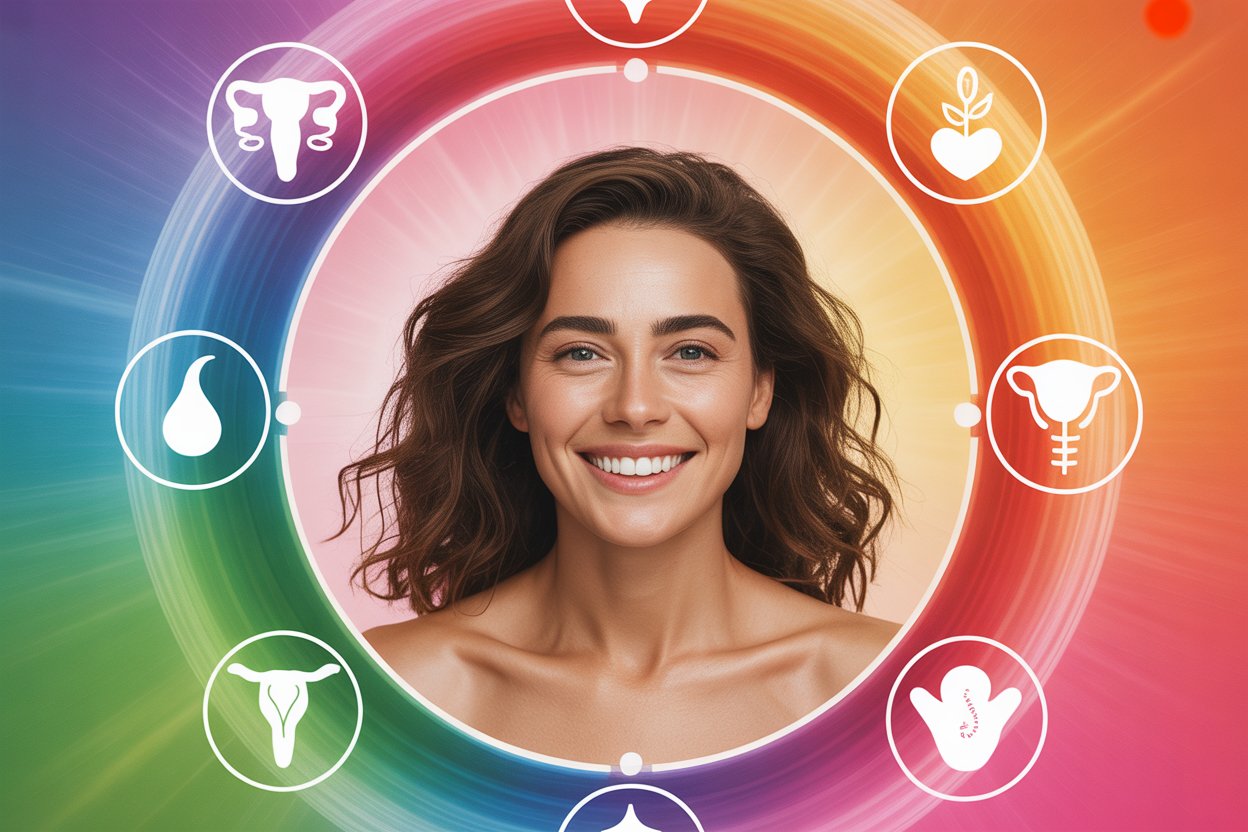
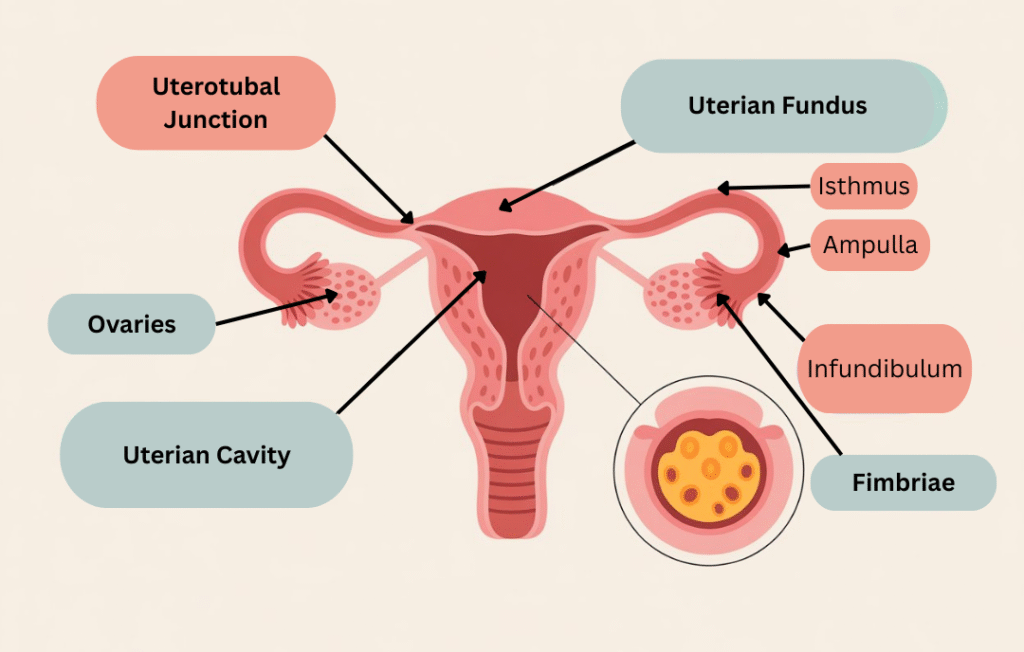
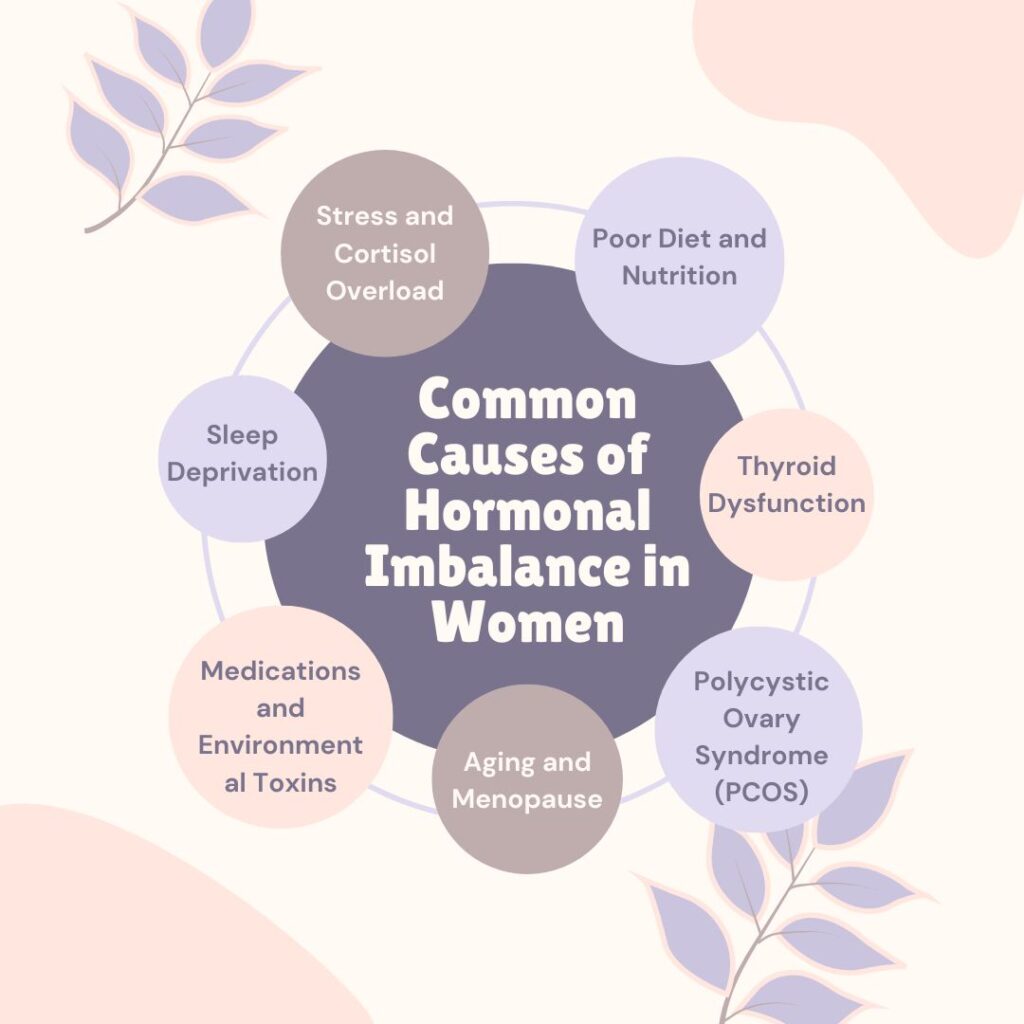
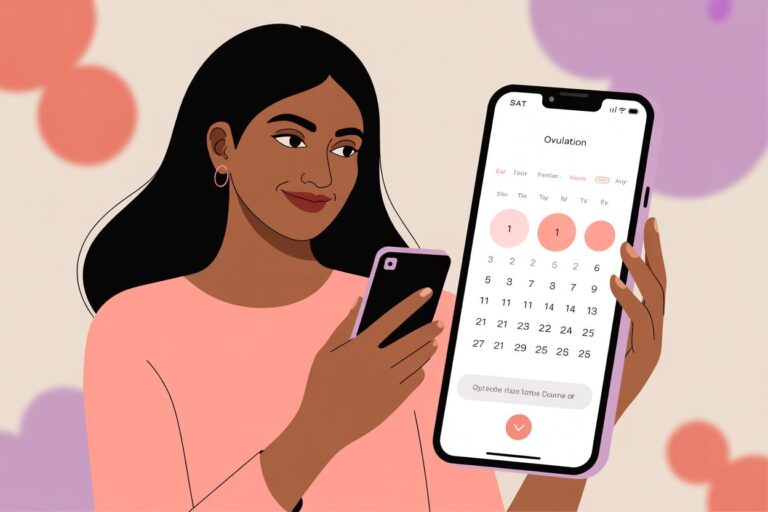

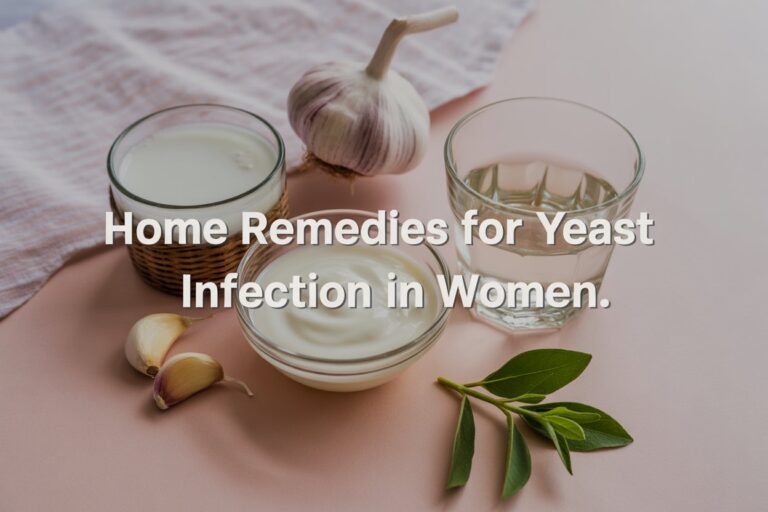
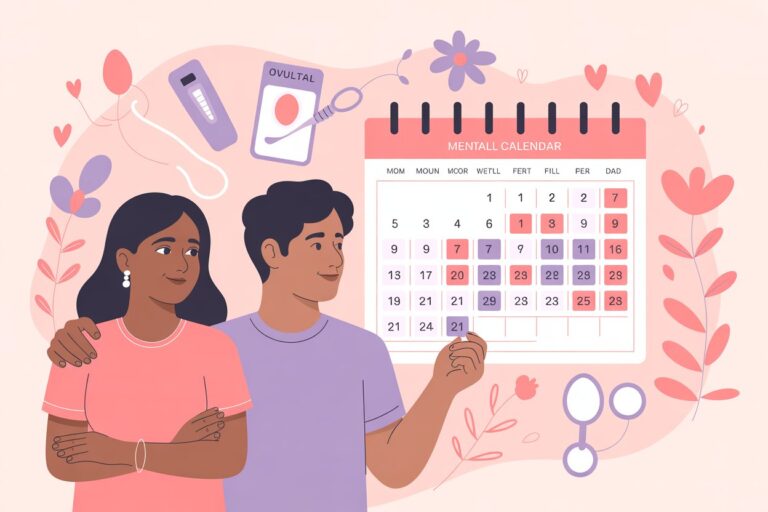
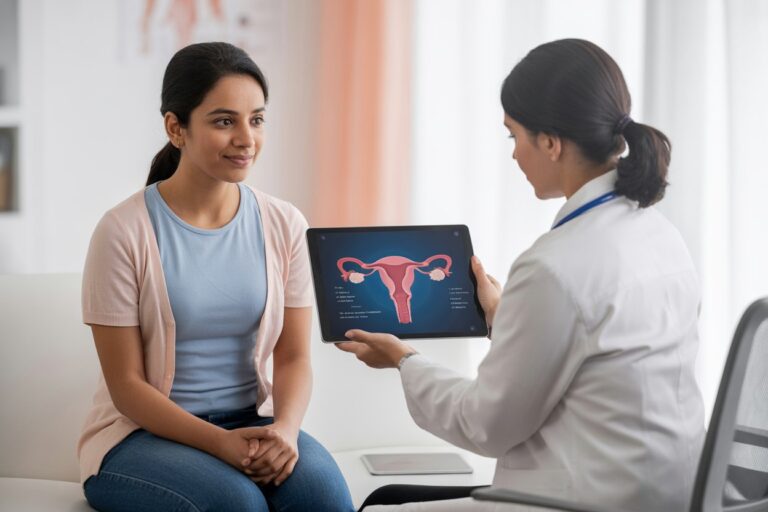

One Comment